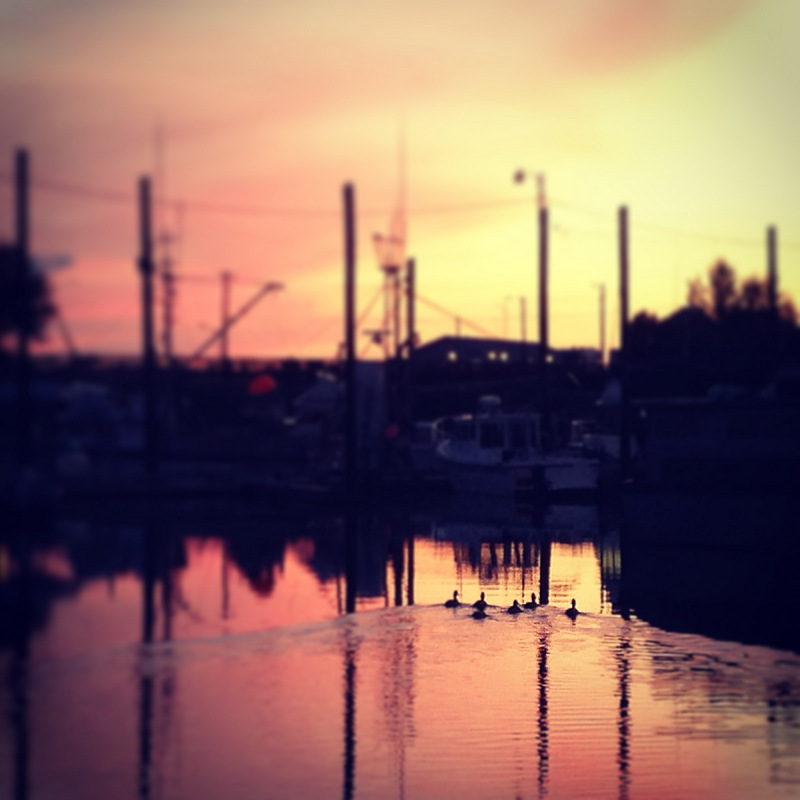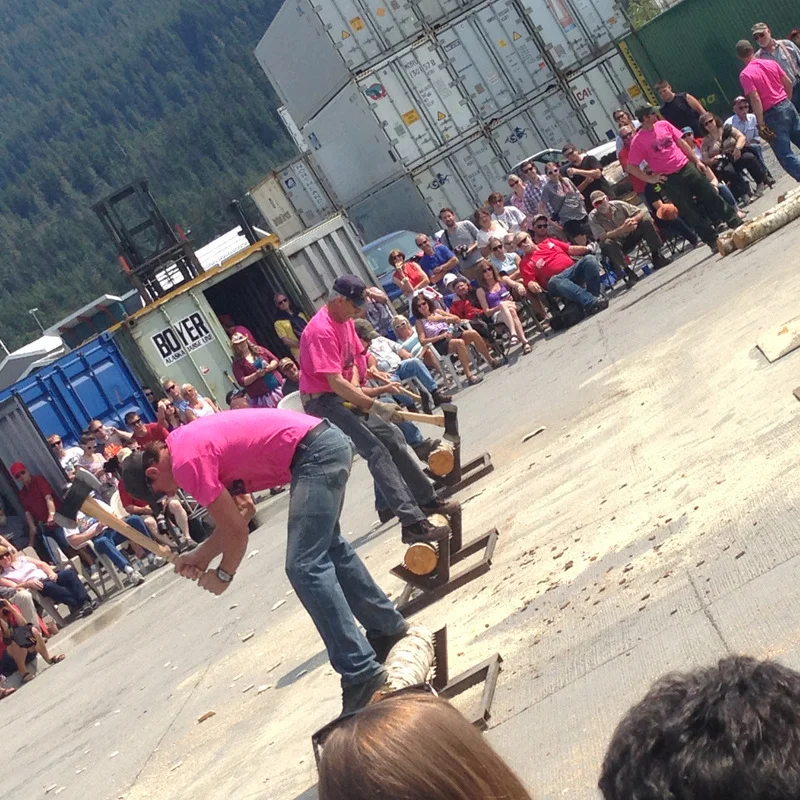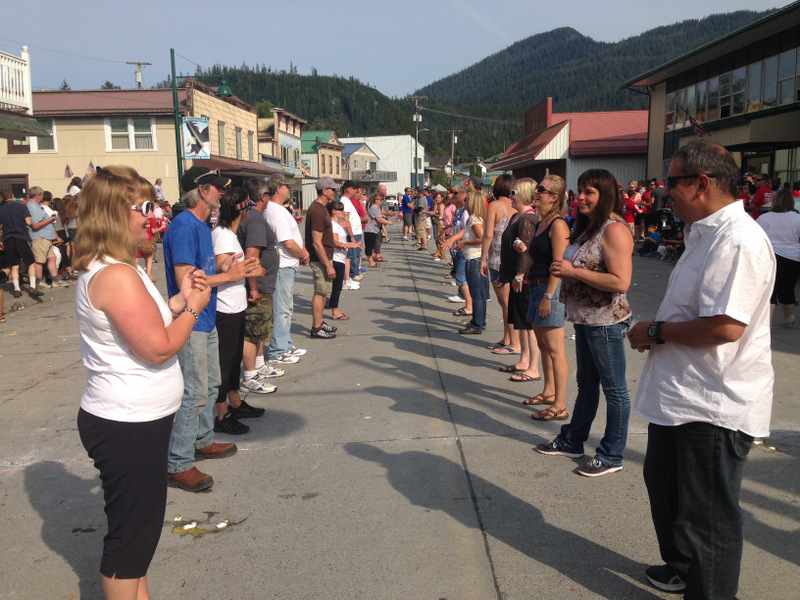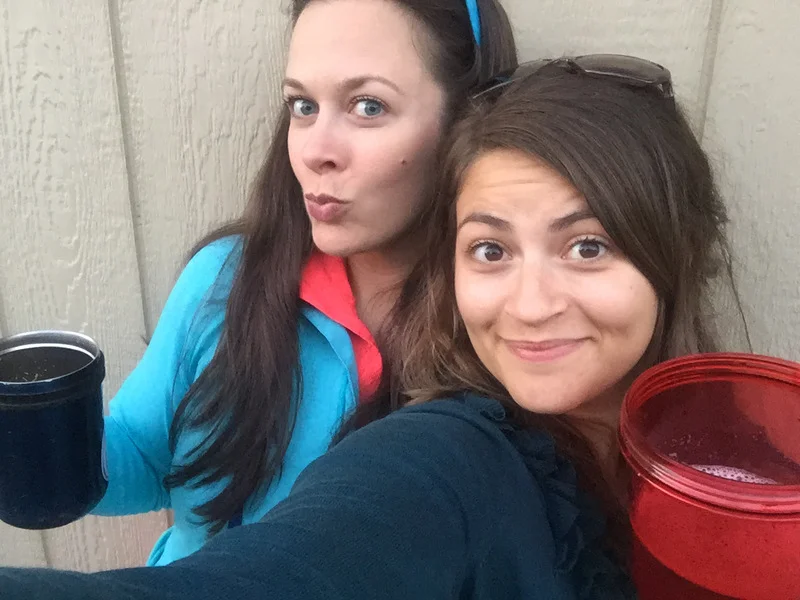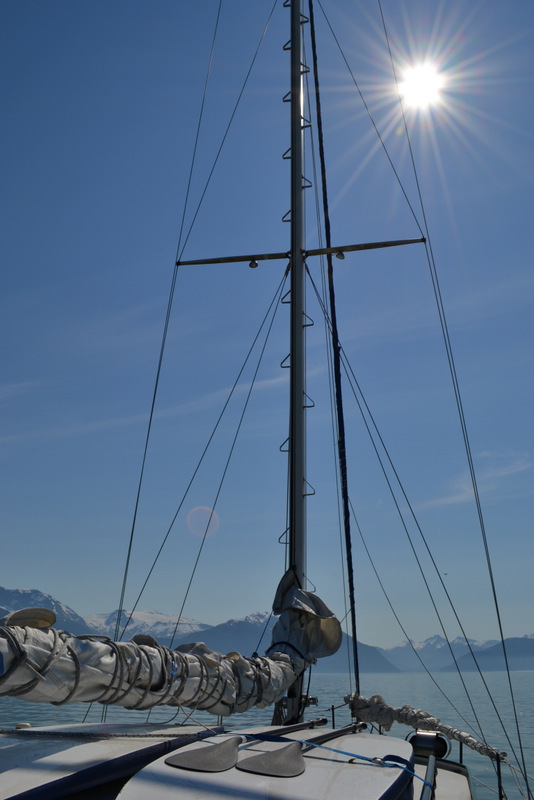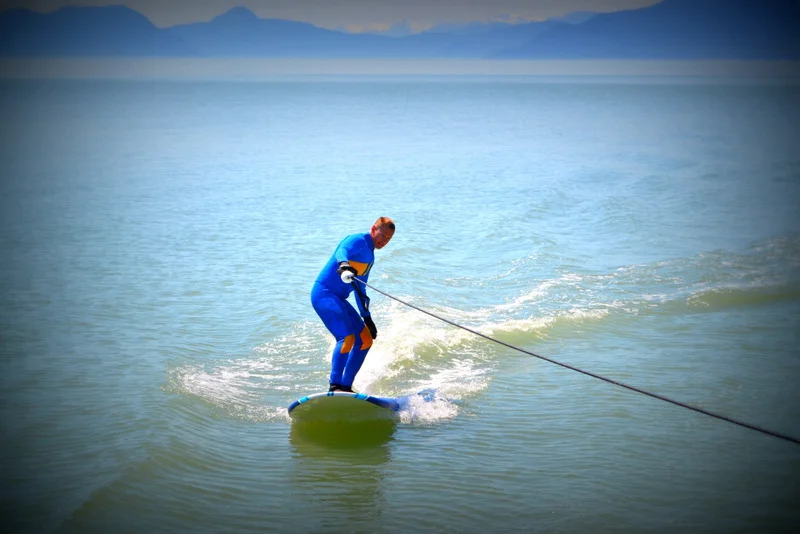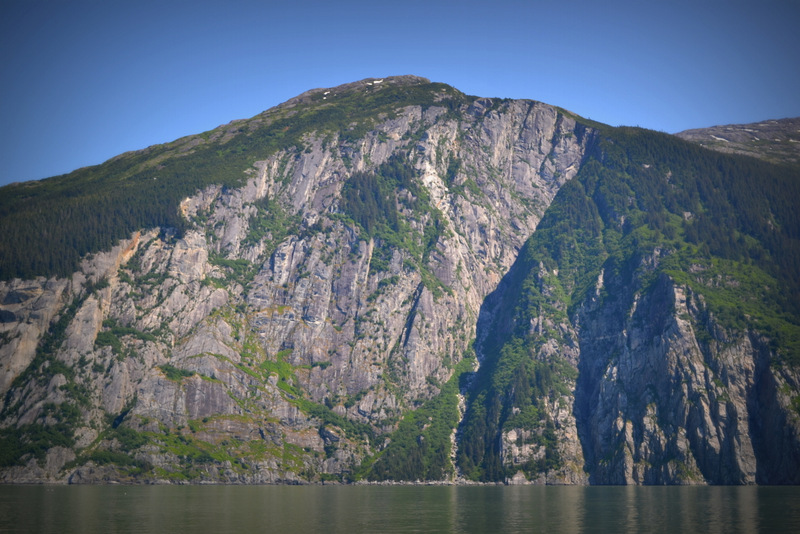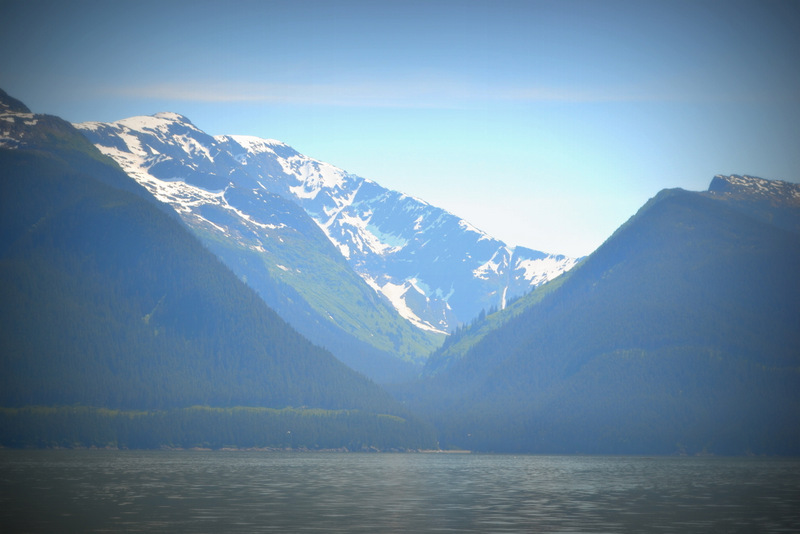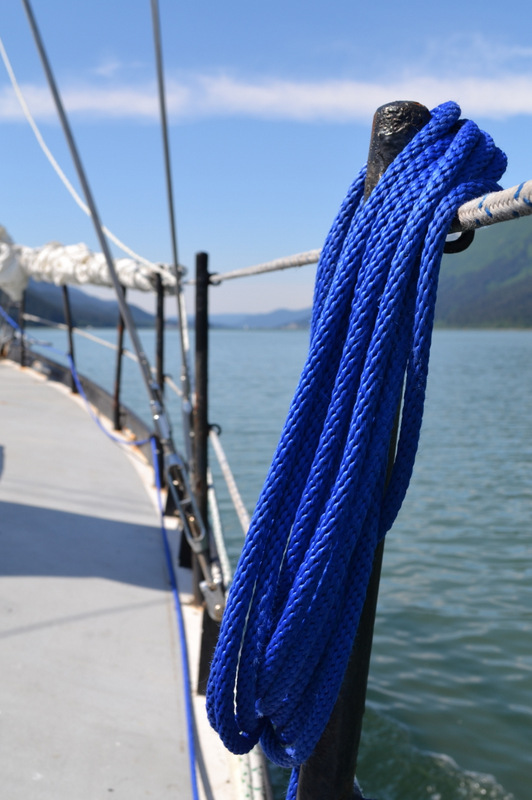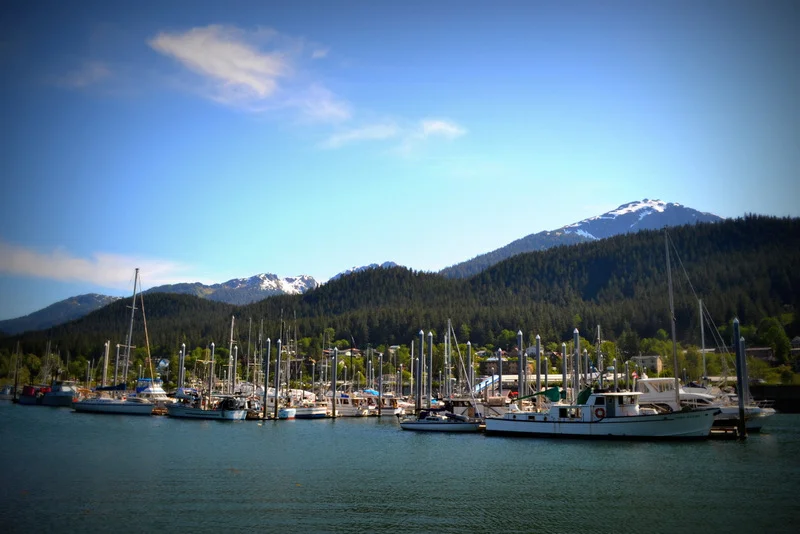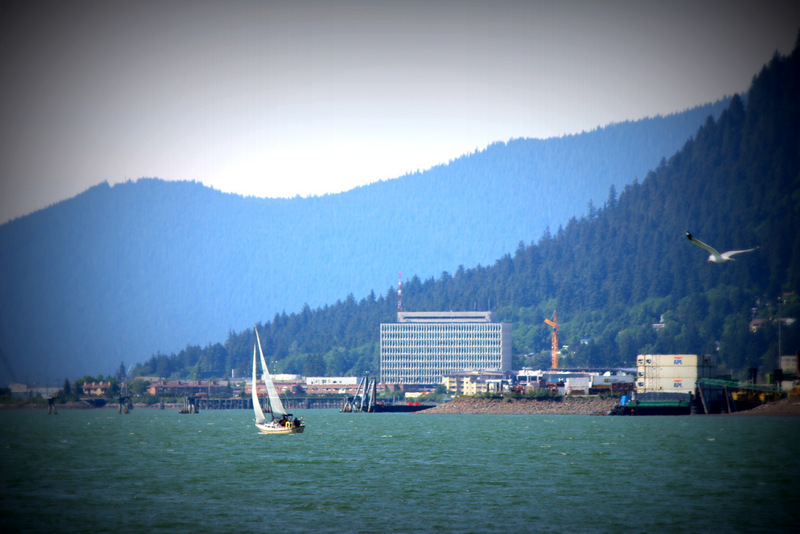I spent the Fourth of July weekend in the rural and remarkable town of Wrangell, Alaska. Along with a group of fun friends, we took the Alaska Marine Highway from Juneau to Wrangell, then flew back on Alaska Airlines a few days later. Such an adventurous trip! Here are a few observations and pictures:
- Hitchhiking is a widely accepted mode of transportation. We hitchhiked as a group four times and didn't die.
- There's only one taxi in the whole town, and it doesn't operate on holidays.
- Wrangell does the Fourth of July like a boss: street parties, lumberjack competitions, and one heckuva fireworks show (probably one of the best in Alaska).
- I need to start training for next year's logrolling competition.
- The egg toss competition is as messy as it sounds.
- For one day a year (4th of July), open containers of alcohol are allowed. When you order a drink at the bar, you can specify if it's for "here or to go."
- Everybody knows everybody.
- There are new friends to be made around every corner, such a wonderful trait of Alaska.
[Click the photos below to expand]

















